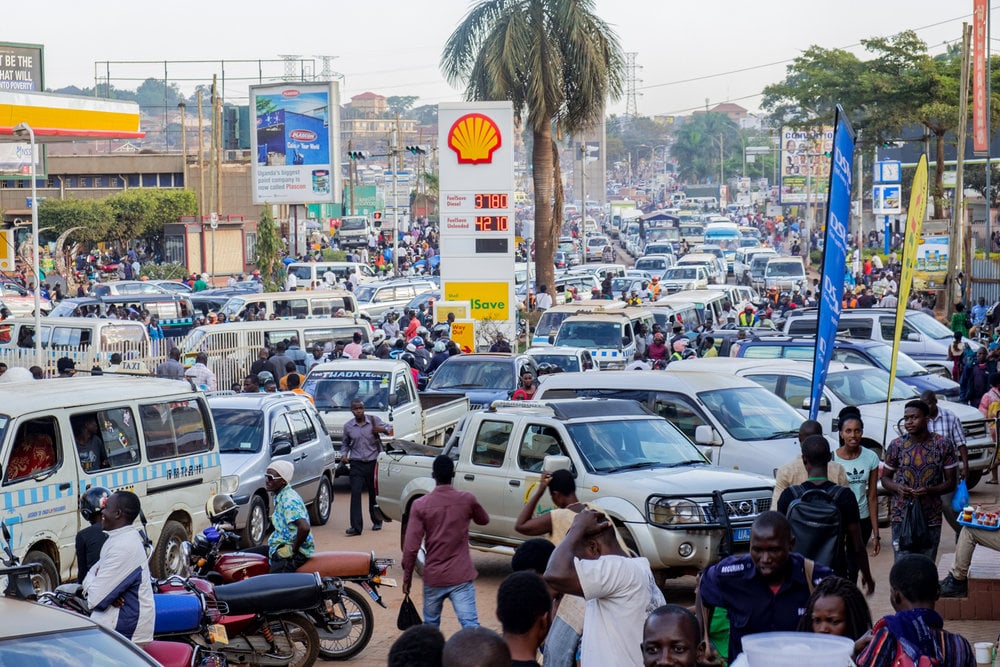Prime
Let’s rethink vehicle taxation measures

Emilly Comfort Maractho
What you need to know:
“ we have to use taxation to support our development aspirations, not discourage them."
One of government’s aspiration is to mainstream strategic environmental and social assessments (SESA) in transport planning systems.
The National Integrated Transport Master Plan (NITMP) development, supported by the European Union is one such plan.
The important thing about the transport master plan is that its development is done with a parallel process involving the SESA, and provides guidance to the Ministry of Works and Transport on ensuring environmental and social impacts are addressed for all projects.
As such, one of the core objectives of the transport master plan that will run upto 2040 is to ensure transport system resilience to climate change. This means integrating environmental protection measures in infrastructure design and construction, as well as reducing transport sector Greenhouse gas emissions, among others.
This is in line with government requirements for policy development. For instance, the National Environment Act No.5 of 2019 requires government policies, plans and programmes being initiated or reviewed, which are likely to have a significant impact on human health or the environment to undergo a strategic environmental assessment. Sustainability is also embedded in the National Development Plan 111.
The importation of vehicles has had sustainability in mind too. Vehicles of a certain age are not allowed into the country and an environmental levy is charged. The problem is, current taxation of motor vehicles makes it difficult to do away with very old used vehicles. It is still common to see vehicles of the 1990s on Ugandan roads with new number plates, because there are perhaps no meaningful incentives to dump them.
The problem with public policies is that sometimes, one set of policy measures may directly undermine other policy goals. The question is, how do we ensure that one sector aspirations are not only put into policy but are also implemented and complemented by policy goals of other sectors?
Uganda Revenue Authority will normally seek to maximise all opportunities for revenue collection. So those who earn regular salaries, and some businesses bear the most burden due to ease of collection. Buying vehicles attract very high taxes.
There are three main things government can do that will bring sanity to vehicle ownership and rid our roads of those dangerous mechanical condition vehicles.
One, government needs to abolish official vehicles for majority of its principals. These can be retained for projects not tied to persons, especially at local government level where implementation of activities and supervision often need transport but there is none.
Yet, most local governments are in hard- to-reach areas. That way, the quality of service delivery at the local level will improve, government will save on buying brand new cars for too many people, which are not only very expensive to run but are abused as well.
Government officials should buy their own cars, pay taxes too and at some levels, can be given transport allowance to cater for their travels or pay them mileage. We would see an immediate reduction of expensive and costly to run vehicles which never follow traffic rules on the roads. This would improve traffic discipline and reduce the burden on tax payers.
Two, we have to use taxation to support our development aspirations, not discourage them. Environmental levy should give significant incentive to those who can buy a car that is at least not more than five years old. Motor vehicle registration tax should incentivize importation of newer car models to the country. The shorter the age of a car the more its taxation should make sense for the buyer. And there should be a mechanism for ensuring that those who import for sale also charge less based on taxes they have paid.
If that happened, more people would opt for fairly newer cars that they can drive for many years without need to change often, thus reducing the number of cars on our roads. As it is, no matter how much tax is levied on older cars, without making newer models much cheaper to bring, we are wasting our time. People will stick to those being dumped at our expense.
Government can also raise money by having higher taxes for persons registering a second and third private car in their names as a redistributive measure. This will discourage people from putting money where they do not need and channel them to investment.
Three, we just need to fix our roads and public transport. Our roads other than highways are a mess. Public transport is a bigger mess. That means, for most people, owning a car is a huge achievement as opposed to owning land for investment or a home. Putting together the state of our roads and the current public transport system, adding boda bodas in the mix, the nightmare is real in terms of travel time and safety.
Otherwise, we shall drive those cars that should be sold for scrap and forget about road safety and climate resilience.
Ms Maractho (PhD) is the director of Africa Policy Centre and senior lecturer at Uganda Christian University.




